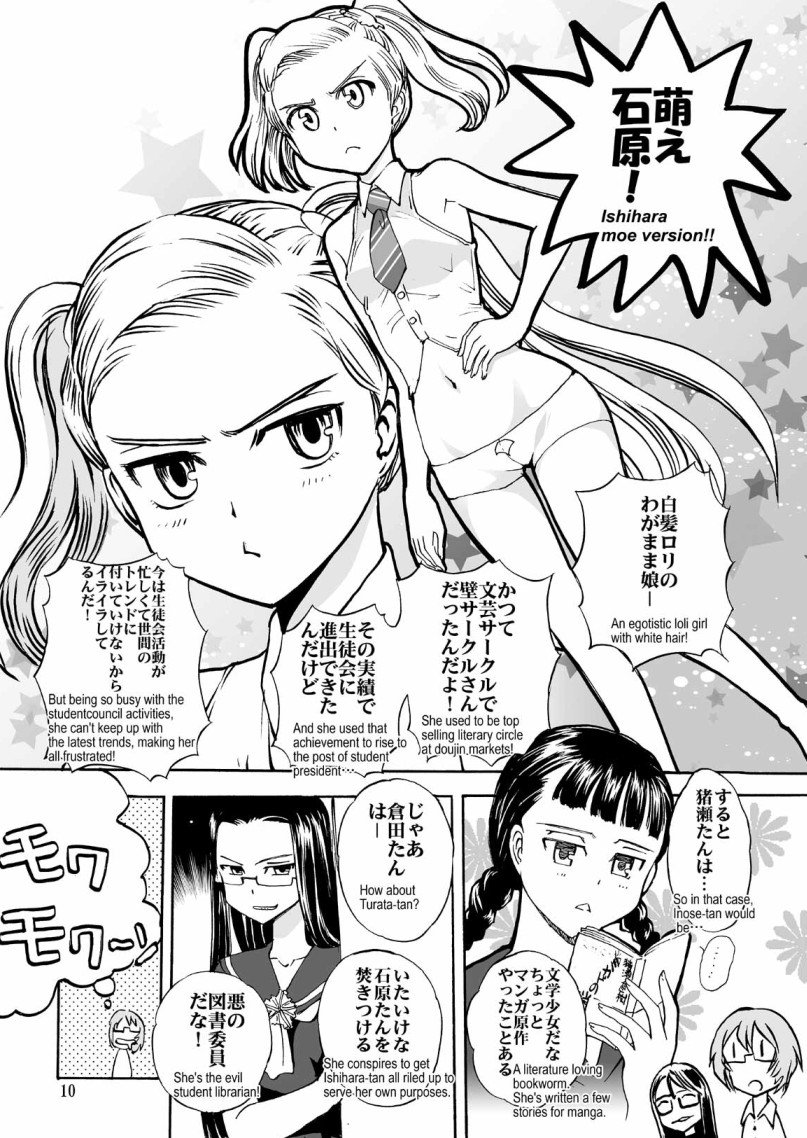 With Winter Comiket on the horizon, opening up Wednesday December 29th through Friday December 31st (pushed back due to the New Year holidays), the tension in the market will likely be much more palpable now that Bill 156 has been passed. Due to its passage and prospective start in July 2011, the revisions to amendments for the "Tokyo Metropolitan Youth Healthy Development Ordinance" will hit prospective manga artists harder now that attention has been showered on their hobbies and professions, mostly from the media coverage. The next Comiket will be in August, a month after the law is put into place.
With Winter Comiket on the horizon, opening up Wednesday December 29th through Friday December 31st (pushed back due to the New Year holidays), the tension in the market will likely be much more palpable now that Bill 156 has been passed. Due to its passage and prospective start in July 2011, the revisions to amendments for the "Tokyo Metropolitan Youth Healthy Development Ordinance" will hit prospective manga artists harder now that attention has been showered on their hobbies and professions, mostly from the media coverage. The next Comiket will be in August, a month after the law is put into place.Keep in mind, as Dan Kanemitsu has been telling us through his blog, that there have been regulations put on the sales of manga and anime before the passage of Bill 156 regarding sex. However, the regulations are much stricter when it comes to sexual acts between minors and adults:
So from the sound of the language in the law, it does appear to be causing more ambiguity in the relationships of minors and adults. What could this mean? It may mean that, while implied sexual relations of a forced manner such as rape are a given, accepted and desired relations between minors and adults could also be targeted. Those student-teacher implied trysts in Sayonara Zetsubô-sensei? Gone. Usagi and Mamoru's relationship in Sailor Moon? Also likely in violation of Bill 156.With the passage of Bill 156, the Tokyo Metropolitan Government will have the additional power to restrict any manga, anime and video games (but not live photography works) that feature any sexual acts that would violate criminal codes or Tokyo ordinances OR sexual depictions between close relatives who could not legally get married to be treated as adult material IF they are presented in “unjustifiably glorified or exaggerated manner.”
Note that criminal acts not only include rape and molestation, but certain relationships between minors and adults, all forms of prostitution, indecent exposure, and other sex-related crimes as well. The text of Bill 156 does not recognize differences in the setting of the story (sci-fi, fantasy, and / or alternate reality) nor if the story takes place in a different historical period nor different geographical location. From now on, authors of general audience fiction of manga, anime and video games must keep in mind all the codes, ordinances, and laws specified by Tokyo and Japan’s law books if they wish to depict any sexual acts. The degree of sexual stimulation will not be a factor for the provisions added by Bill 156.
However, they wouldn't be the only couple in danger—the situation between Haruka and Michiru in Sailor Moon S, once considered taboo and risky to the American airwaves, would likely be banned in Japan, too. Erica Friedman, writer of the yuri-themed blog Okazu, has expressed her own concerns that this bill and Tokyo Gov. Shintarô Ishihara's controversial statements on the LGBT community will hurt stories involving homosexual themes:
What bothers me most about this is that it is exactly the kind of stunt that people who have stashes of child porn pull instead of actually trying to do anything to make actual children safer. Real child porn is not covered under this act - only drawn stuff. And, based on bill sponsor and Governor of Tokyo Ishihara Shintarou's recent statements about LGBT people being genetically deficient and pathetic, I can see that an easy target can be made of LGBT-themed content. Ishihara has recently made some very controversial comments about women, the LGBT community, foreign influence and "protecting" children. Stepping back from the issue of manga at all, it seems apparent to me that he has begun to wage a war against gays, women and children. This cannot be a good trend.In order to jump-start the protests against the bill and inform manga fans in Japan about both the situation and the stance taken against the bill by overseas fans such as ourselves, Kanemitsu has joined forces with artists Takeshi Nogami and Takaaki Suzuki to release Saru Demo Wakaru Tojôrei Taisaku ("An Idiot’s Guide to Tokyo’s Harmful Books Regulation"), a dôjinshi on the matter of Bill 156 to be released at Comiket. The trio is fighting fire with fire by depicting Gov. Ishihara and his cabinet as manga stereotypes—moe-fied girls, Boys' Love bishônen, and Hokuto no Ken stunt doubles.
 At the same time, they are also writing their response to the bill in the form of three articles:
At the same time, they are also writing their response to the bill in the form of three articles:- "Political Activism as a form of Fan Activity"
- "Why did the Nonexistent Sex Crimes Bill pass while the Nonexistent Youth Bill was defeated?"
- "Overseas Perspectives on Japanese Manga and Anime"

Thanks for the link and the heads up on this, Geoff. I'm fascinated with this response to the Bill. Parody is an effective weapon, as anyone who watches the Daily Show knows.
ReplyDeleteCheers,
Erica